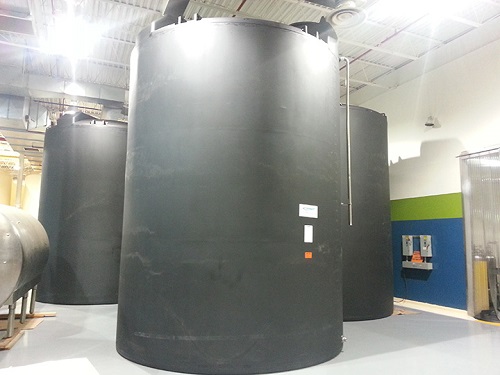
Poly tanks, short for polyethylene tanks, are versatile storage solutions made from durable plastic. These tanks have gained immense popularity across various industries due to their numerous advantages, making them a go-to option for liquid storage. Whether you need to store water, chemicals, or food products, poly tanks offer a reliable and efficient solution. In this blog, we’ll dive into the key features, benefits, and applications of poly tanks.
What Are Poly Tanks?
Poly tanks are constructed from polyethylene, a type of plastic known for its strength and resilience. They are designed through a process called rotational molding, which ensures a seamless, single-piece construction. This process eliminates the risk of weak points and leaks, making poly tanks incredibly durable and long-lasting.
Key Features of Poly Tanks
Durability: Polyethylene is resistant to corrosion, rust, and chemical damage, making poly tanks ideal for storing a wide range of liquids.
Lightweight: Compared to traditional metal tanks, poly tanks are significantly lighter, which makes them easier to transport and install.
UV Resistance: Many poly tanks are treated to resist UV rays, preventing degradation from sunlight exposure and ensuring longevity even in outdoor settings.
Versatility: Available in various shapes and sizes, poly tanks can be customized to meet specific storage needs, from small household tanks to large industrial containers.
Cost-Effective: Poly tanks are generally more affordable than metal or fiberglass alternatives, offering a cost-effective storage solution without compromising on quality.
Benefits of Using Poly Tanks
Environmental Friendliness: Polyethylene is a recyclable material, making poly tanks an environmentally friendly choice.
Low Maintenance: Unlike metal tanks, poly tanks do not require regular maintenance to prevent rust or corrosion, saving time and money.
Safety: Poly tanks do not leach harmful chemicals into the stored liquids, ensuring the safety and purity of potable water and other sensitive contents.
Flexibility: The material’s flexibility allows poly tanks to withstand impact and pressure changes, reducing the risk of cracks and leaks.
Common Applications of Poly Tanks
Water Storage: Ideal for rainwater harvesting, irrigation, and potable water storage, poly tanks are a staple in agricultural and residential settings.
Chemical Storage: Their resistance to corrosion and chemical reactions makes poly tanks suitable for storing various chemicals in industrial environments.
Food and Beverage Industry: Food-grade poly tanks are used to store ingredients and liquids, ensuring compliance with health and safety standards.
Septic Systems: Poly tanks are often used in septic systems due to their durability and resistance to soil and water conditions.
Fuel Storage: Specialized poly tanks can safely store fuels and other flammable liquids, providing a secure storage option.
Conclusion
Poly tanks offer a practical, durable, and cost-effective solution for liquid storage across a wide range of applications. Their resilience, versatility, and low maintenance requirements make them an excellent choice for both residential and industrial use. Whether you’re looking to store water, chemicals, or food products, poly tanks provide a reliable and efficient storage option that meets modern demands.
